What happened to Team GB’s Rio Olympics hockey champions?
Team GB Women’s hockey team, gold medalists at the 2016 Summer Olympics, face a two-legged play-off this weekend to qualify for Tokyo 2020. It has been a long and winding road since Rio
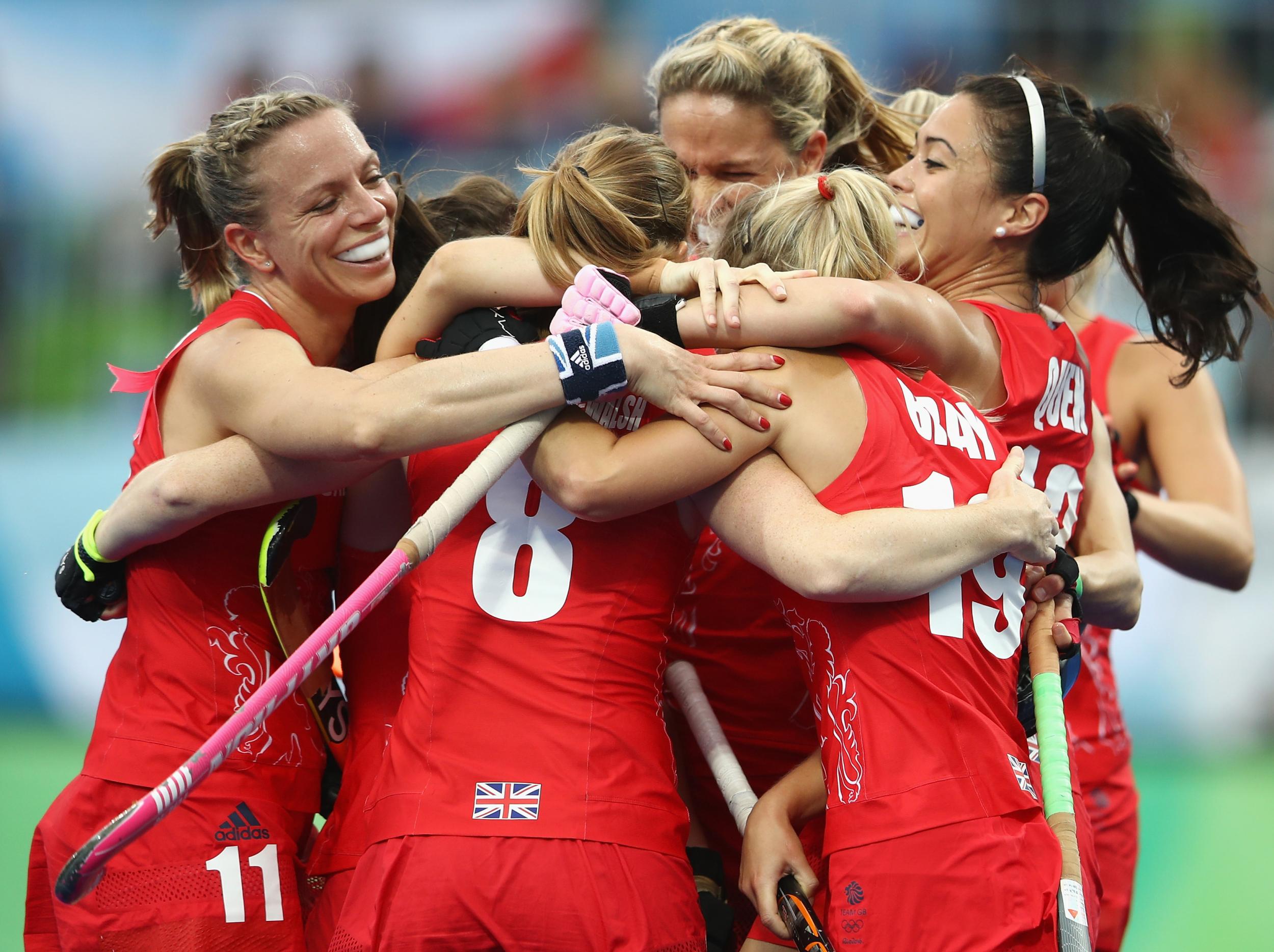
On the surface, the jeopardy is too great to ignore.
Team GB Women’s hockey team, gold medalists in Rio 2016, face a two-legged play-off this weekend to qualify for Tokyo 2020.
Failure to do so goes beyond the embarrassment of not having the opportunity to defend their title. It would the first time they have missed out on an Olympics since 2004. At the end of 2016, funding was topped up by UK Sport to allow better support for those athletes, with part and full-time contracts offered to 40 men and 40 women. No other programme comes close to being as well-funded.
Their form has been patchy since Rio. Seven of the 16 players who won gold have retired and with that has come indecision. England failed to medal in the European Championships this year for the first time since 2003 – seven tournaments ago. In the FIH Pro League, Great Britain finished eighth out of nine when a higher placing would have secured automatic Olympic qualification.
Play-off opponents Chile are one of the most improved nations on the circuit. Ranked second in South America, they arrive as relative unknowns to this crop of players.
However, as counter-intuitive as it sounds, nothing above should worry you. Or rather, nothing above should surprise you.
Welcome to the Olympic treadmill: of wayward results, teams in transition and individuals battling to summon the pluck to scale a peak once more or do so for the first time.
*****
Retirements after Olympic Games are nothing new. Just as there were seven players to move on from after the success of 2016, eight of 2012’s bronze-winning squad decided enough was enough after securing GB’s first medal since 1992 in Barcelona.
The gruelling nature of the four-year cycle takes a toll on body and mind to such an extent that motivation to embark on multiple campaigns relies on the absolutes of either chasing the high of getting back on the podium, or avenging the low of bitter disappointment.
For Laura Unsworth, it has mostly been the former.
As a defender with over a decade at the top-level, she’s familiar with the grind and has the medals to prove it. She was there in 2012 and 2016 and has two silvers and a bronze from Commonwealth Games, too. Last year, though, she began wondering if she had it in her to push on.
She has always been a lung-buster across the astroturf, ever since her first England training session when the coach at the time, Danny Kerry, saw her dawdling back into position and shouted, “Unsy, if you’re not even going to run back then you’ll never get picked in my team!”
Another phrase, used regularly by retiring teammates, also stuck with her – about “always knowing” when your time is up.
“The hunger is still there.” she tells The Independent. “Physically, I feel like I’m in the best shape I’ve been in for a while. The body’s holding up pretty well which, after all these years, is pretty good going!”
Unsworth is only 31 and though she has spent the majority of her life testing the very limits of her lungs and joints, there are plenty of years left. But in a sport that is only getting quicker, she knows as an older player she must stay ahead of the curve.
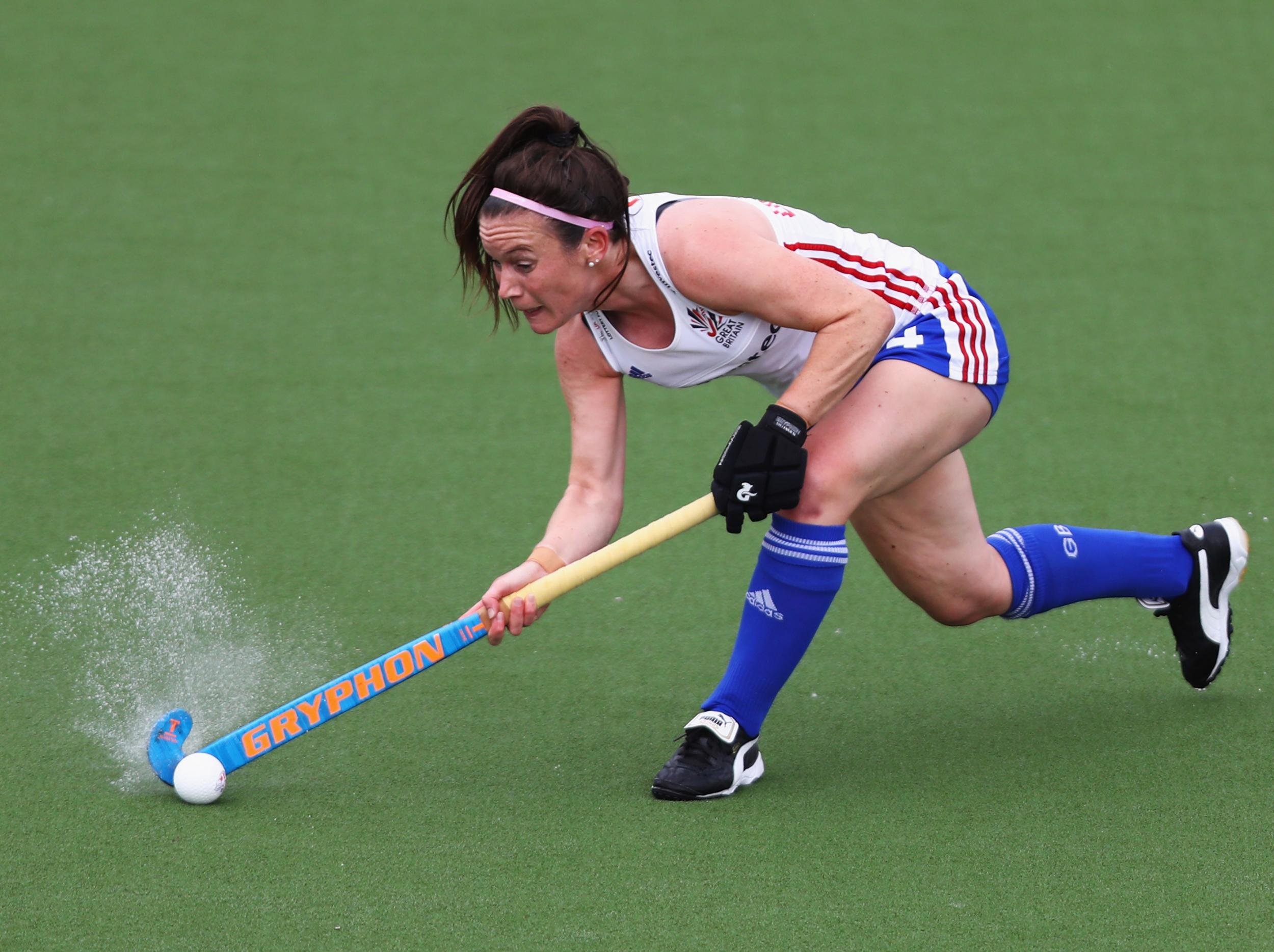
Following the Euros, endurance was put top of the agenda and the weeks that followed, by all accounts, were gruelling. Extra sessions were combined with intense matchplay which will hopefully translate to a higher tempo of play.
Planning around fitness now is meticulous. Each player has their tailored training programme which ensures they can continue their work to a high level all year, even when they are away from the National Sports Centre in Bisham Abbey. Measurements are collated regularly to ensure everyone is moving forward as one.
Another advancement has been the push to improve the volume and detail of video analysis. Globally there has been a huge drive among analysts to get more matches coded (inputting data such as formations, shifts, pass completions, player movements) which has been helped by an increase in the amount of hockey broadcast online and on television. Video has provided the foundation for preparation towards the weekend's opponents.
“I think this might be my first time even playing Chile,” says Unsworth. Remarkable considering she debuted in 2008 and has 257 appearances for England and Great Britain. “Their world rankings previously have meant we’ve never quite been in the same tournaments.”

“Now, because of their rise, they’ve played in more tournaments so we have quite a lot of footage of them. We probably had nothing on them, say, four or eight years ago.”
With that footage, Chile’s style has been analysed so patterns of play can be mimicked in training, both at walking and full pace. “There shouldn’t be anything we don’t know about.”
This, to be fair, is how all opponents are treated. The ante has not suddenly been upped because of what is at stake. Results, of course, have been testing with the usual teething problems associated with incorporating new faces. But, as Unsworth points out, no more so than previous cycles.
“If you look at the Champions Trophy [held in 2016] just before Rio, I think we came, what, fifth?” Sixth, actually. Out of six. Without winning a single game. “Then, in 2014, we had the 11th-place finish in the World Cup. It wasn’t all plain sailing.”
A change of coach was an expected jolt, especially as Kerry, who left to coach England and GB men in 2018, had been in his post for 13 years. His replacement, Australian Mark Hager, was appointed at the start of the year and endured a testing few months as the subject of a review into his methods as coach of New Zealand. The review, published in April, sighted players describing the environment as “negative” but there was no specific criticism of Hager and, subsequently, things have moved on. In turn, he has begun imprinting himself on these bunch of players, and they on him.
Unsworth has also taken on more responsibility. “I’ve always prided myself on setting the standard. Now, it’s changed a bit because you realise there is more on you to do so at all times as a senior member. In training, on the pitch.
“I remember when I first came in, it was so tough to adapt to. The younger players, though, are willing to put in the hard work. They are the future and they are very, very talented. We have to continue to help them breakthrough.”
There is no mollycoddling per se, merely passing on experiences of coping in demanding environments. For those younger players, the pressure will be beyond anything they have ever experienced.
*****
Lizzie Neal is one of them.
At 21, she is a sports management undergraduate by education (another off the Loughborough University production line), a forward by trade and, as of January, a full-time international.
Neal watched the 2016 Olympic final against Netherlands at her club side, Canterbury. She did not think she would be three years away from calling some of those players her teammates. “It’s still a bit of a shock I’m playing with some Olympians,” she says. Senior hockey was always on the agenda, though with a “let’s just see what happens” attitude.
Her game evolved at university and she earned a spot in the national development programme. A “trial” with the full team followed and, soon, she joined them outright. “It was earlier than I expected,” she says, looking back on that first step up. “I don’t know if at the time I was ready, but they [the coaching staff] certainly did. It’s been a bit of a rollercoaster.”
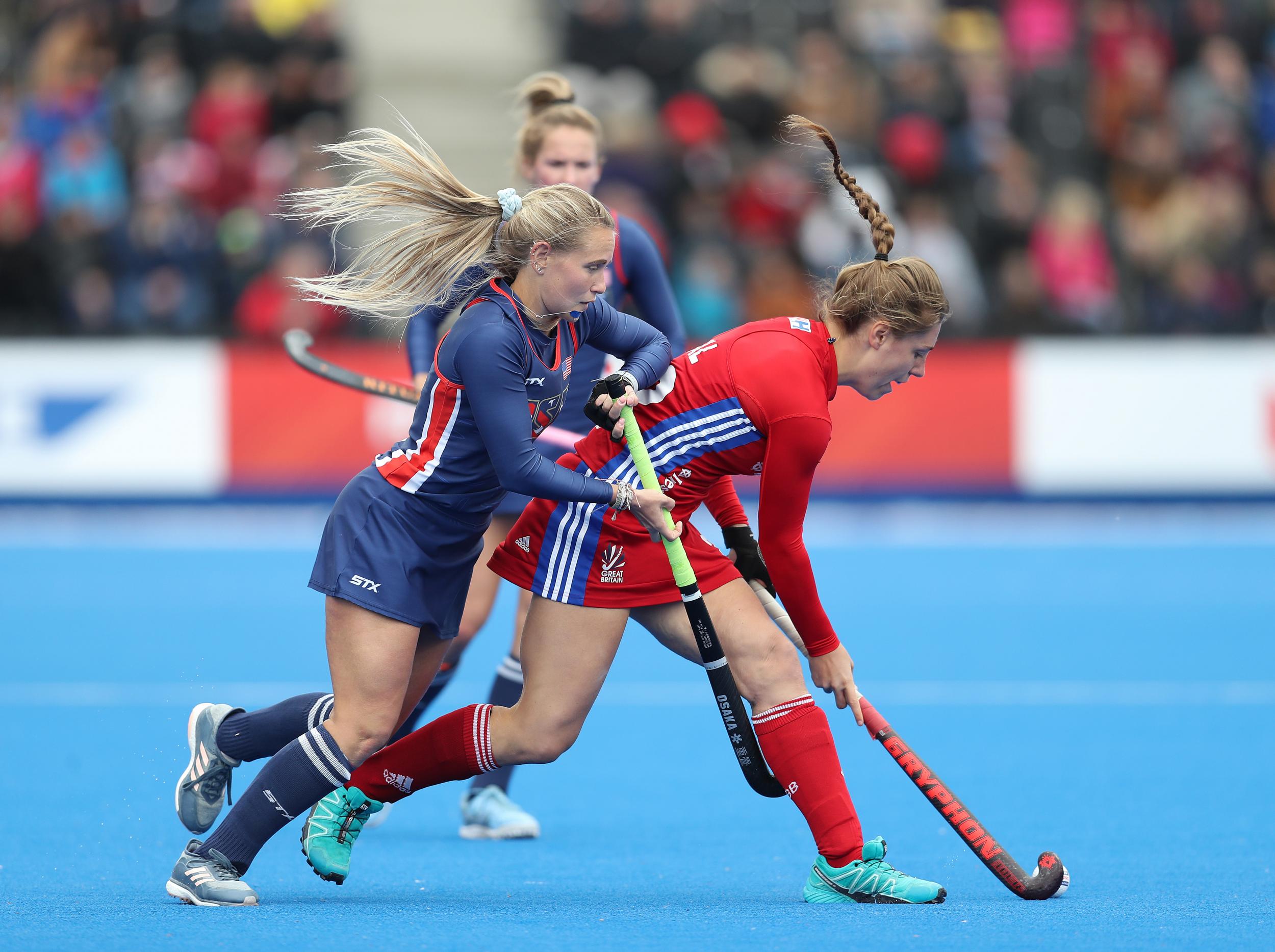
Because of the timing of her call-up, Neal is in a unique position where all 12 of her caps to date have been for GB. She played in the Pro League where Hager was able to find out more about her in keeping with British hockey’s practice of exposing youngsters to the rigours of international competition. The old school “sink or swim” ethos. In the case of Neal, it worked.
Her maturity comes through most when discussing Chile. She waives her usual exuberance and bubbly, can’t-believe-she’s-here disposition for a more matter-of-fact approach, with focussed talk of her “responsibility to perform well”. It has taken time for her to feel this comfortable at this level.
The day-to-day training was not that big a change from the development to the seniors, but the speed of the game surprised her, as it does everyone. Time on the ball is minimal and first touches have to be immaculate. “It felt like there was always going to be a player behind you, ready to take the ball off you,” says Neal. “I’d never played anything like that fast.”
But she developed similar intensity in her own game and learned the values of what coaches describe as “staying in the contest”.
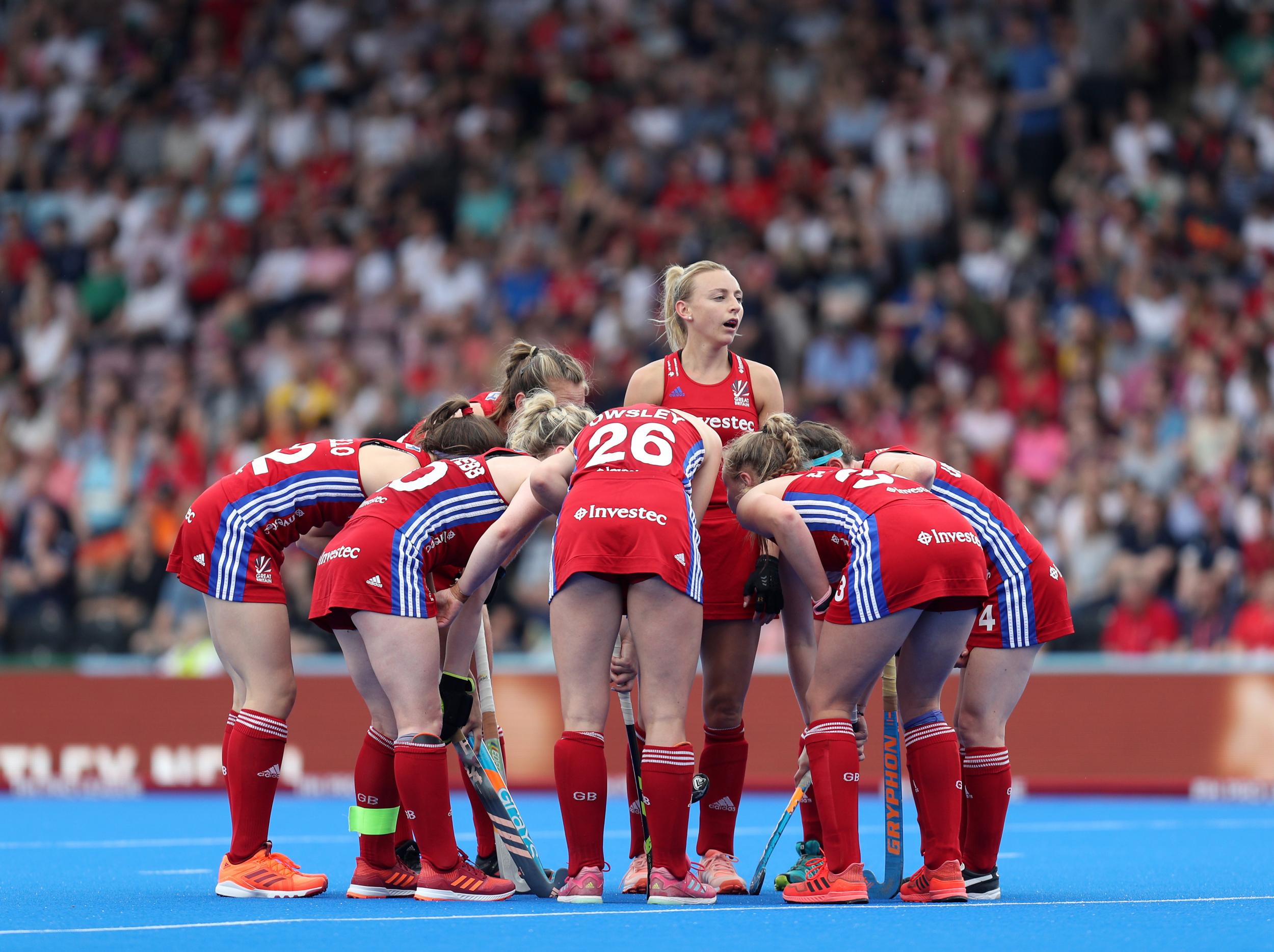
The size of the pitch and the pace across the turf – of opponent and ball – can give those not attuned to the pace an almost drowning sensation of being caught out by one wave and then being taken under by countless others. Finding that balance between being nimble enough to keep up with transitions and strong enough to haul yourself back to parity is a must. Neal cracked that by focussing on defence.
Taking a page out of Unsworth's book, she ensured she was more mobile and did not dive into tackles. Her general success rate in one-on-one contests has improved as a result.
It is a lot for a newcomer to take on, especially having to do so with so much riding on every performance. But this is just the way things are in the build-up to an Olympics. It is all about learning on the job. Trial and error. Sinking or swimming.
“I didn’t think my hockey ability was at that standard. You know, it probably wasn’t. But I feel more settled and happy with where my game is at now.” Does she now feel she belongs at this level? “Absolutely.”
*****
Hollie Webb’s gold-clinching penalty got all the airtime. While that single moment will forever be hers, the shootout as a whole belongs to Maddie Hinch.
None of the four Dutch penalties made it past GB’s goalkeeper, each save making her seem that little bit bigger. She had always been regarded as one of the best goalkeepers around, but in shutting out the defending Olympic champions – the standard-bearers in women’s hockey – when it mattered most put her comfortably above the rest.
Understandably, her world changed. Achieving the first British team to win gold in the competition’s history will do that. The final was watched by 9.7million on the BBC and Hinch was trending on Twitter long after. Improved coverage in the sport was inevitable and, like others, Hinch found the sudden jump tricky to navigate. The toughest part was what she consumed.
“Improved coverage” is a bit of a Trojan horse in women’s sport. More column inches and more matches broadcast help grow the sport, enhances marketing opportunities and improves the profile of those involved. The money swilling around increases, contracts get bigger and, suddenly, life after sport is not as precarious as it once seemed.
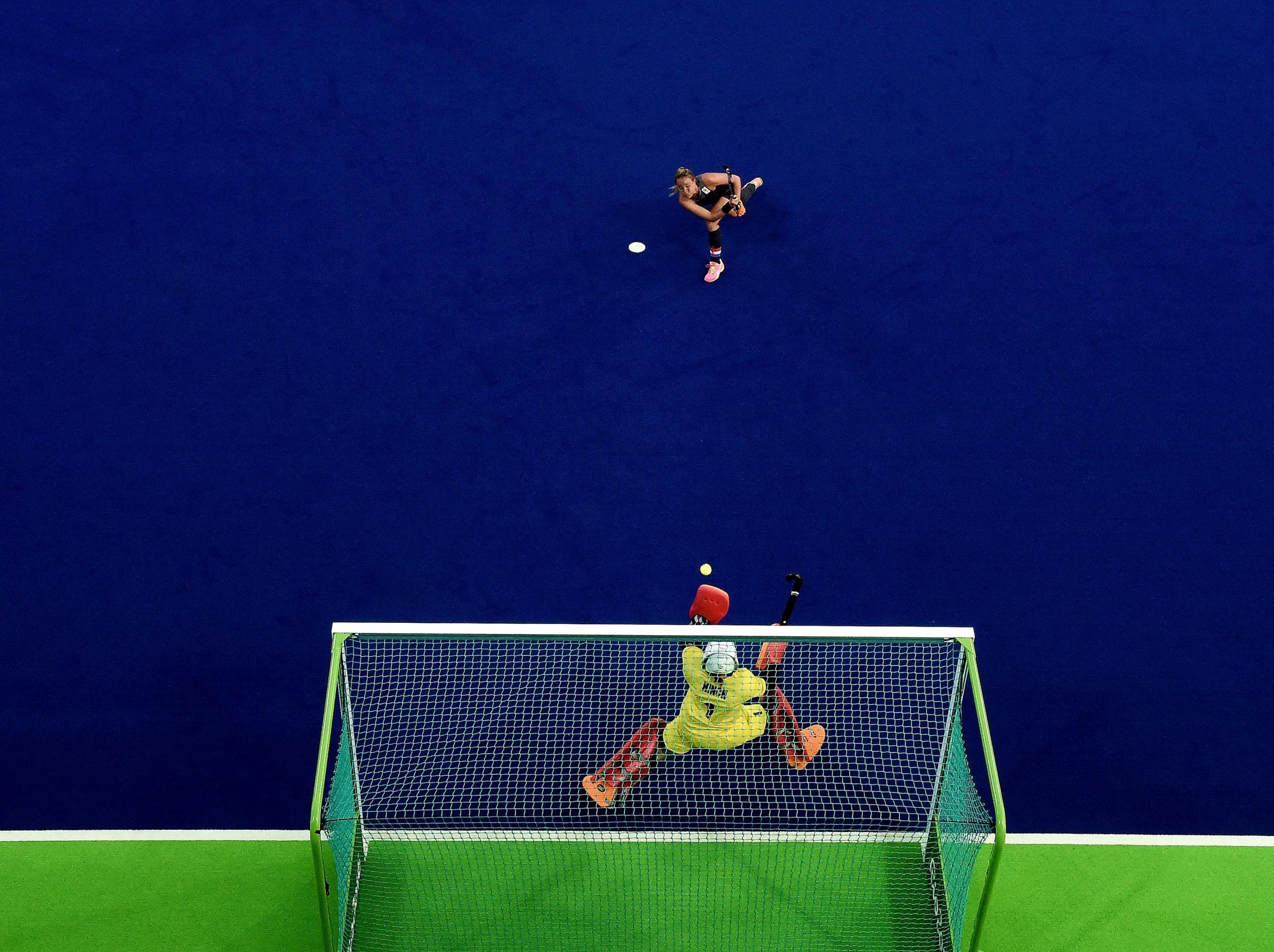
Unfortunately, the knowledge of the sport does not broaden at a similar rate. Thus, there is a lot of white noise, especially, as those Olympic champions found, when you stop winning. Great expectations meant greater disappointment. Hinch found it hard to decipher what to take on.
“At the end of the day, we’d all rather have people talking than not talking,” she says. “Because that means people are following and it means people care. But you’ve got to be so careful about what you actually listen to and take on board.”
She began picking holes in her own performances in quite an unhealthy way. Having made it to the top, she was desperate for a way back.
“It’s hard. When you’ve had a taste of the ultimate – a gold medal – you want them all the time. You just expect it to be there all the time. And I was just chasing that so hard, expecting perfection from myself so often that I just got tired and burned out. I was exhausted from it all.”
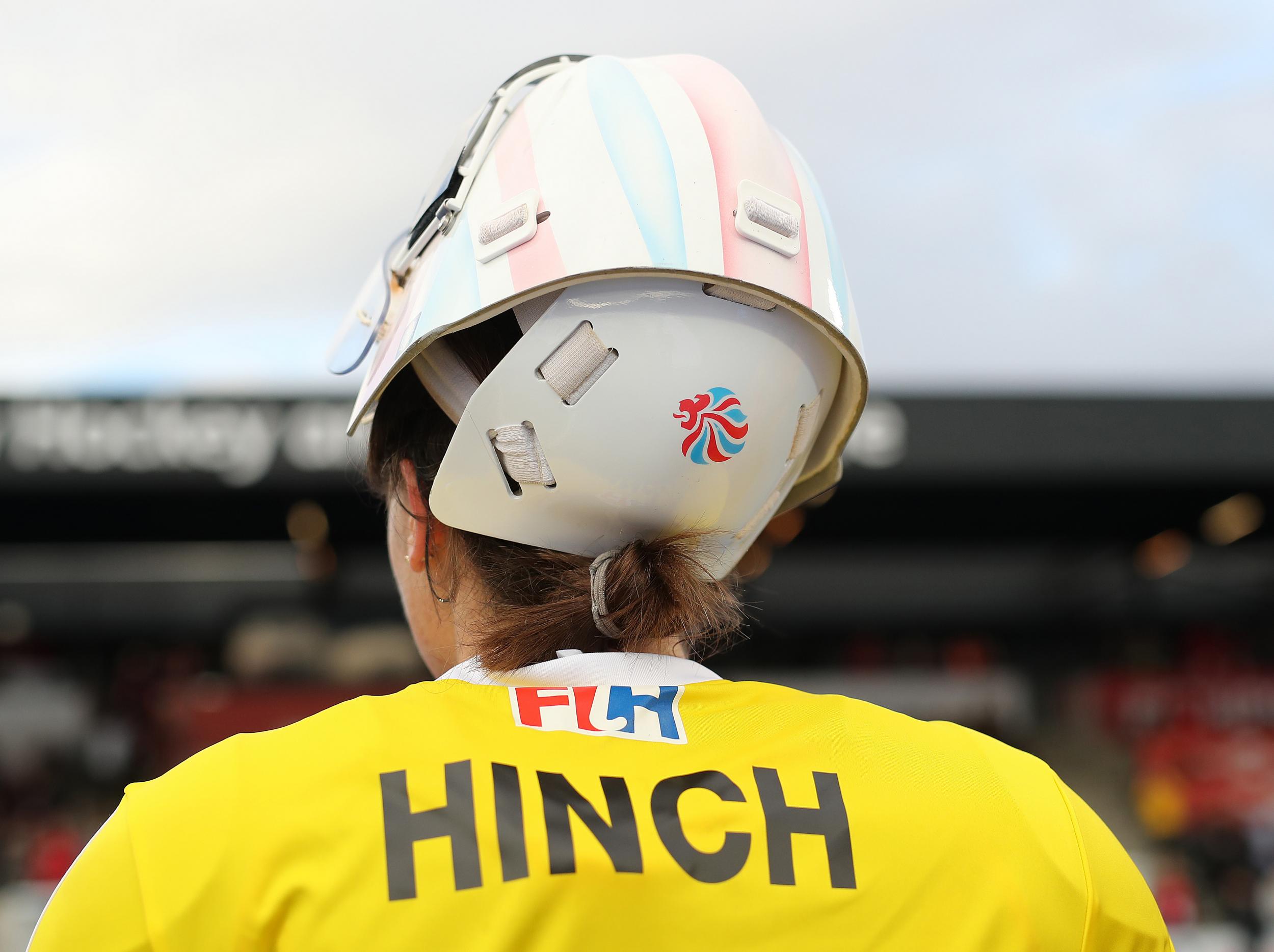
On some days she would wake up and not want to train, an immediate red flag for someone who was all about the graft. She describes that period as “a really scary place to be in”. Last September, Hinch decided to cut off from it altogether and took a break from the sport.
During the early stages of this sabbatical, she wondered if retirement was an option to take. Gradually, time away rekindled her appreciation of life and her fondness for the game.
“I needed to put everything into perspective and not try and live up to the expectations of the outside world. Just focus on what is important to me. I realised I still love the sport, I still love playing and I still feel like I can contribute to this team.
“I’ll still get stuff wrong, but I find it easier now to park it and move on. Being less bothered about what people have to say.”
The most drastic change for Hinch since returning in May has been the decision not to play any club hockey. Hinch spent a period in the Netherlands playing for Stichtsche Cricket en Hockey Club in Utrecht and, despite a strong domestic set-up financed by sponsorship from Investec, who have supported women’s hockey from grassroots to the national team since 2011, she decided against continuing at home. The reason is one we can all relate to: she wanted to reclaim her weekends.
Saturdays and Sundays are now spent as far away from hockey as possible, surrounded by friends and family, making up time with loved ones she put on the back-burner during her more intense days. She even got herself a pet – a French bulldog called Willow.
“I don’t regret the way I used to be because that’s how I got to where I’ve got to. But it comes to a point when you have to work out what you need at this time in your career. I can keep myself happy like this. Stopping the ball is the easiest part – it’s about what’s going on between my ears!”
The number of international fixtures in this period mean match sharpness is not an issue. With more clarity in her role since returning, coupled with her life experiences, she possesses a better understanding of what she must be to this team.
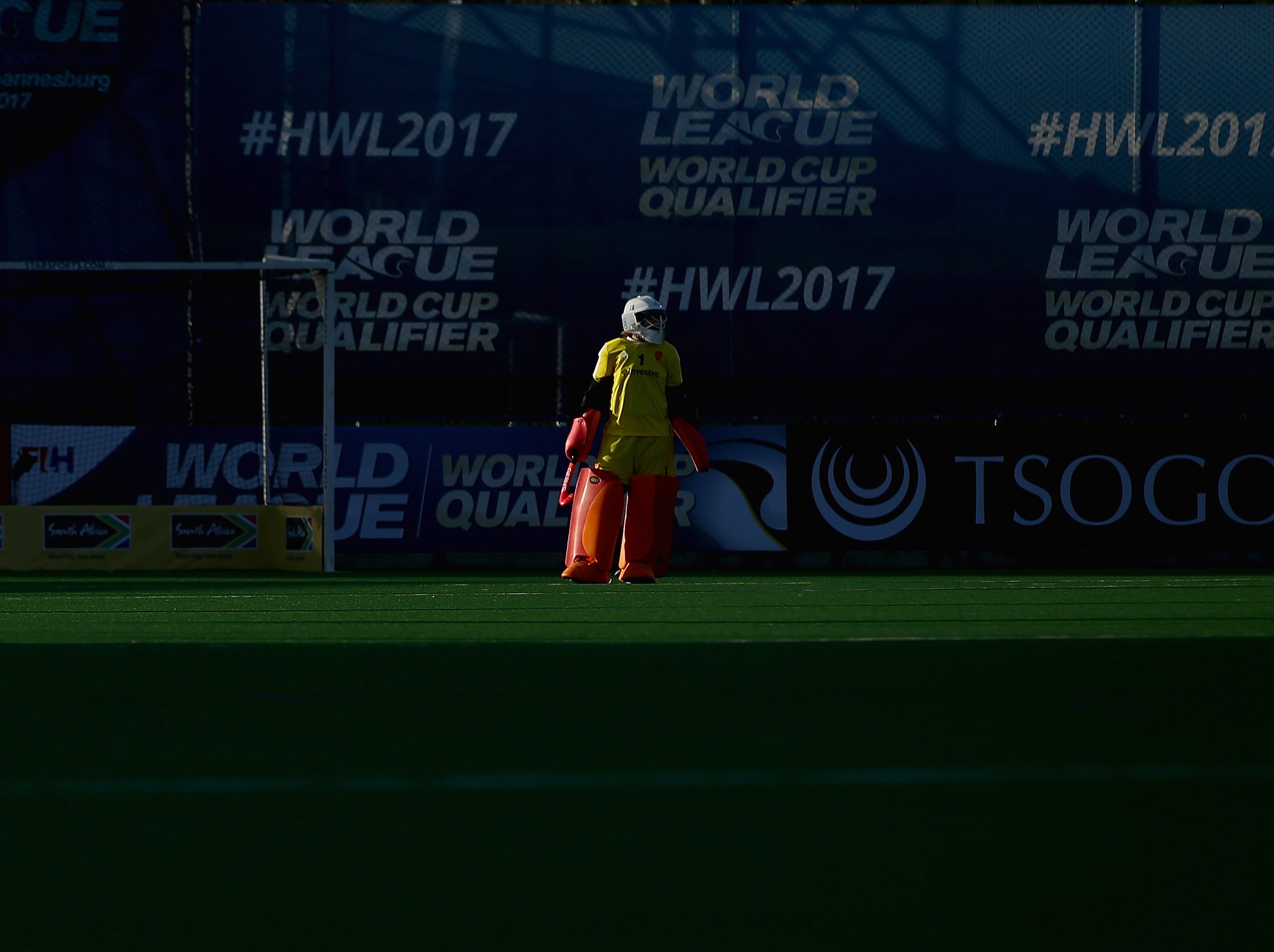
“I can see what’s important and, as a team, they need me to have that sort of role to be a leader. It’s my duty to see the bigger picture. See the journey this group is on.
“In a game now, I put more focus on the guys in front of me than myself. In the past I had such an experience backline that I only literally had to focus on myself. Now, I enjoy helping those in front of me develop and watching their games evolve.”
“There’s been a lot of changes. It’s not been easy. And the results have really kinda hurt us. But that’s what we needed to go through which is exactly what we went through with the Rio group before we started to see the real success.”
Hinch stops herself at this point, wary she’s been waffling. She hasn’t, but seems to have been thrown by her own enthusiasm. She thinks back and relays that this is how she knew she still loved the sport, because of moments during her break when she would seek to indulge it. “It’s important that you also have those rock bottom moments,” she offers, “because that’s when you learn about yourself.”
*****
GB are heavy favourites to beat Chile, especially as the nature of a two-legged dilutes the threat of a shock. November is also very late for an outdoor fixture in this country and the visitors will be unaccustomed to the low temperatures at the Queen Elizabeth Olympic Park. The hosts, for all the expectation they will carry into the game, have a lot in their favour.
But regardless of whether you are a player finding your feet, a stalwart of 11 years or a modern-day great, the scale of achieving Olympic qualification is the same. The chance to realise ambitions harboured as a kid. The culmination of years of graft. The reason you have to sacrifice the comforts of a normal life.
This will be Neal’s first-taste of all-or-nothing hockey. For Unsworth, quantifying this weekend is straightforward: GB’s qualification in 2012 was automatic as hosts and tournament based in 2016: “This play-off will be one of the more higher pressure matches”. Hinch goes one step further.
“In terms of making everything worthwhile, the decisions you’ve made and what you put yourself through – these two will be the most important matches of your career. They certainly are of mine.”
Join our commenting forum
Join thought-provoking conversations, follow other Independent readers and see their replies
Comments
Bookmark popover
Removed from bookmarks